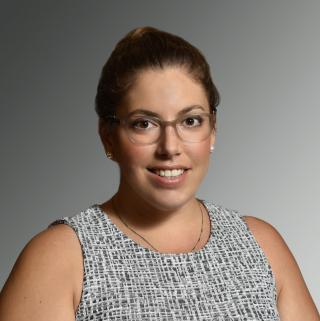
My research explores systemic obstacles to the inclusion, advancement, and representation of historically marginalized groups within elite political institutions, such as legislatures and the executive in Israel. In my dissertation I unpack the debate regarding representation by offering a typology of women’s representation – individual politicians advocate for women’s issues largely due to their own marginalization, and relative position of weakness within political institutions. Therefore, individuals belonging to a historically marginalized group bearing the burden of addressing discriminatory policies and laws is unlikely to significantly improve conditions for group members. Throughout my research I consider the institutional conditions and incentives for large-scale social change. I use both quantitative and qualitative methods. My current research builds upon my work on the Israeli Knesset by exploring questions of intersectionality and political representation. Understanding the dynamics undergirding political achievements among Palestinian women in Israel offers important insights for minority women in the MENA region and for minority women in multi-ethnic and multi-religious contexts. Furthermore, due to the ongoing conflict between Palestinians and Jewish-Israelis, the lived experiences of Palestinian-women permanently living in Israel and endeavoring to engage with their surroundings receives little attention. The circumstances of the Palestinian minority are a permanent and yet unresolved feature of the state of Israel. The growing electoral power of Palestinian-Israelis alongside right-wing extremism, and Palestinian-women’s featured role within these, demands greater scholarly attention.
Education
- PhD, University of Maryland College Park, Department of Government and Politics (2017)
- MA, Brandeis University, Department of Near Eastern and Judaic Studies (2010)
- BA, Brandeis University, Islamic and Middle Eastern Studies (2009)
Research Interests
- Political Representation
- Gender and Politics
- Political Parties
- Electoral Systems
- Democratic Legislatures
- Israeli-Palestinian Conflict
Fall 2023 Courses
- JSTU-J306: Israel: History, Society, Politics, Culture
Previously Taught Courses
- Gender and Politics
- Gender, Conflict, and Security
- Intro Political Theory
- Israeli Society
Publication Highlights
- Noa Balf, 2023 The Precedent of October 7th in the Israeli-Palestinian Conflict: Systemic Gender and Sexual-Based Violence
- Noa Balf, 2021 'I don't know her': How Israeli elections disregard women voters +972 Magazine
- Noa Balf, 2021 Can she handle it? How the Israeli media covers women politicians +972 Magazine
- Noa Balf, 2021 Israel will hold national elections on Tuesday. Here's a guide for the totally unfamiliar. The Washington Post.
- Noa Balf, 2020 Why are Israeli Generals Such Terrible Politicians? +972 Magazine
- Noa Balf, 2020 Call it what it is: Normalization of Men. The Women Stayed Home. The Forward
- Noa Balf, 2020 Israelis are great at protesting. They aren't great at turning those protests into lasting change.Jewish Telegraphic Agenecy JTA
- Noa Balf, 2020 A Multi-Pronged Approach to Gender Equality in Israel Wilson Center
- Noa Balf, 2020 Femicide: A case study in Israeli Pandemic and Crisis Mismanagement Wilson Center
- Noa Balf, 2019 The Status Quo and the Feminization of Political Alternatives Israel Studies Review Journal
- Noa Balf, 2019 Parties and Voters - Why Women Politicians in Israel Cannot Catch a Break Wilson Center